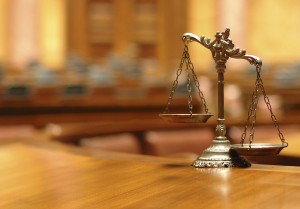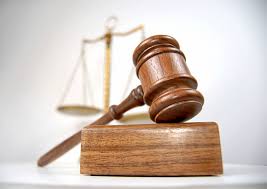In this blog post, Rashi Chandoke, an Associate with ANA Law Group, Mumbai, and a student, pursuing a Diploma in Entrepreneurship Administration and Business Laws from NUJS, Kolkata, discuss the circumstances when a Director is not held responsible for the actions of the Company.
Introduction
A company is an artificial person, a separate entity, i.e., it is distinct from its shareholders, directors, promoters, etc. Even though an artificial person is a legal person, it cannot physically carry on activities on its own. The directors of a company carry on activities on behalf of a company. Therefore, directors have a fiduciary relationship with the company. The Companies Act 2013 (the “Act”) is mainly focused on corporate governance involving transparency and accountability. Additionally, it places a high degree of duties and obligations on the Board of Directors (the “BOD”).
Unlike the old Companies Act, 1956, the Act focuses on the independence, impartiality, and transparency of directors while carrying out their functions in accordance with the interests of the company. The Act aims that the directors while carrying out the duties and other functions shall prefer the company’s interests over their personal interests. In the event of an offense committed by a company, apart from the company itself, the law makes relevant individuals liable. This leads to a concept of “officer in default” under the Companies Law. The term “offense” shall mean any act or omission made punishable by any law for the time being in force.[1] For instance, the Act states that the non-executive directors or independent directors shall be held liable, only in respect of such acts of omission or commission by a company, which had occurred with his knowledge, attributable through board processes, and with his consent or connivance or where he had not acted diligently, provided he is not a promoter or Key Managerial Personnel.[2]
The Act also states that the managing director, the chief financial officer, or any other person charged by the board with the duty of complying with the provisions, is liable for punishment and fine for contravening such provisions.[3]
Liabilities Of A Director Of A Company
The directors are held liable for the breach of their duties. The liabilities of a director under the Act may be civil or criminal in nature. Civil liabilities mainly requires directors to make payments, whereas, criminal liabilities arising from an offense, requires directors to undergo fines and imprisonments.
Directors are also held liable for the claims made against them by the company, or the shareholders, for the breach of their duties. As the directors perform duties towards the company, at the outset, it is the company that can bring a claim against the directors. In the event where the company is unable to do so, it is open to the shareholders to bring a derivative claim on behalf of the company to recover the damages for the breach of duties of the directors. These claims are quite stringent in theory but are challenged with tremendous difficulties in practice. At a substantive level, there are obvious inadequacies regarding the types of remedies that are available for the breach of the duties of the directors. The ability of shareholders or the company to bring a suit, and even more, to enforce a successful claim against directors, is highly uncertain. India displays a rather inefficient track record of civil claims against directors that have resulted in payouts by them.[4]
The Act institutes mechanisms that are new in the Indian framework. The class action mechanism allows a group of shareholders (constituting a minimum of 100 shareholders or those holding 10% shares in the company) to bring an action on behalf of all affected parties, which includes claims for compensation from directors for any fraudulent, unlawful or wrongful act or omission or conduct on their part. Additionally, the Act devices a mechanism to sidestep the regular court system by enabling such actions to be brought before recently constituted National Company Law Tribunal (the “NCLT”) that is expected to be speedier, more efficient and cost-effective. Once these remedial mechanisms are in place, it is likely that the directors may be subjected to greater scrutiny by civil liability suits by companies and shareholders. It is expected that the directors’ liabilities regime in India would get stringent, and the impact of such regime is yet to be seen.[5]
The Act states that a director, who resigns from the company, shall still be liable for offenses committed during his tenure as a director. Following are the circumstances where a director or person in charge of the affairs of the company can also be prosecuted, along with the company:
- If there is sufficient evidence of his active role coupled with criminal intent; or
- Where the statute specifically imposes liability.
Safe Harbor Provisions
There are provisions from which, a director can escape from the liability. In any proceedings, a director could seek relief on the ground that he/she acted honestly and reasonably. The Act seeks to limit the liability of independent directors only to matters directly related to them. An independent director is liable only in respect of such acts of omission or commission by a company which had occurred with his knowledge, attributable through board processes, and with his consent or connivance or where he had not acted diligently.[6] This is to protect the liability of independent directors for acts of the company for no fault of their own. While such a provision for the limitation of liability is useful, much would depend on upon the manner in which courts interpret it is based on the specific facts and circumstances of different cases. To understand the scope of this provision, following are the elements that are to be looked into:
- Knowledge;
- Attributable through board processes;
- Consent or connivance; and
- Not acted diligently.[7]
Knowledge: The independent directors are involved on a periodic basis. This involves participation in board meetings, discussions with management, contributions made in the case of specific issues of strategic nature that may arise from time to time. Additionally, the issue may arise as to whether knowledge would refer to actual knowledge or constructive knowledge. Actual knowledge refers to something the director in fact knew. Constructive knowledge refers to something the director ought to know, which would impose an obligation on the director to conduct a due inquiry. Mere reference to actual knowledge would lead to irregular results, as the director may be better off in a position of ignorance, which defeats the purpose. It would motivate directors to refrain from probing further in case any red flags have been raised. Such a broad interpretation would impose more onerous obligations on directors.
Attributable Through Board Processes: This implies that a director shall be deemed to have knowledge of all matters that have been taken up at the board level. For instance, if board papers are delivered to a director along with the agenda for a meeting, the director may be ascribed with knowledge regarding the contents of those papers. Also, the director would be deemed to have knowledge of all matters discussed at a board meeting. To invoke the safe harbor provision, directors may be required to take additional practical steps. For instance, directors must ensure that any questions raised by them in a board meeting or any dissent expressed are properly recorded in the minutes of the meeting so as to provide prima facie evidence of proceedings before the board in case the role of the director were to be called into question in a liability suit.
Consent or Connivance: It requires a higher level of mental state on the part of the directors, who are involved more positively in the act or omission.
Not Acting Diligently: This implies to the duty of care, skill, and diligence which the directors must comply with certain minimum standards. The standard is not clearly defined under the law, given the lack of case law on this count. It is, however, likely that all kinds of directors will be subject to a minimum standard that must be met. Hence, directors can no longer ignore developments within the company, fail to attend board meetings with a sense of regularity or omit to raise the right questions. All such matters would be subject to strict scrutiny while considering whether the directors have complied with the standard of diligence.
Indemnities from Company
The Act does not contain such a restriction, which may confer greater flexibility on directors to seek indemnities from the company, in case they have to meet any liabilities, particularly if no fault can be attached to the directors’ conduct.
D&O Insurance
The practice of obtaining directors’ and officers’ (D&O) insurance has become prevalent in Indian companies and is only likely to grow given the expansive liability regime under the Act. The Act implicitly recognizes the ability of the company to incur the premium expense to obtain D&O insurance policies. While obtaining an adequate level of D&O insurance policies would be prudent for all boards and directors, regard must be made to the fact that policies are usually accompanied by specific exceptions for fraud, willful misconduct and other forms of intentional criminal conduct.[8]
References:
[1] Section 3 (38) of the General Clauses Act, 1897
[2] Section 149 (12) of the Act
[3] Sections 128 (6) and 129 (7) of the Act
[4] Umakanth Varottil, “Director Liability under the New Regime”, 16 June 2014; available at: http://indiacorplaw.blogspot.in/2014/06/director-liability-under-new-regime.html
[5] Supra note 4
[6] Supra note 2
[7] Supra note 4
[8] Supra note 4
 Serato DJ Crack 2025Serato DJ PRO Crack
Serato DJ Crack 2025Serato DJ PRO Crack










 Allow notifications
Allow notifications


